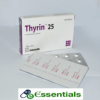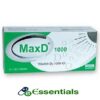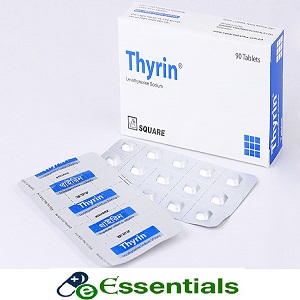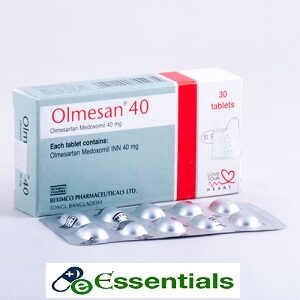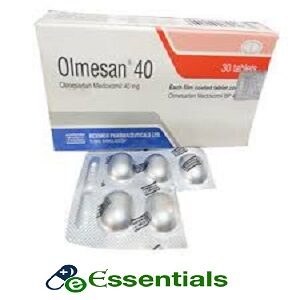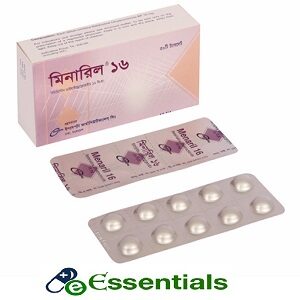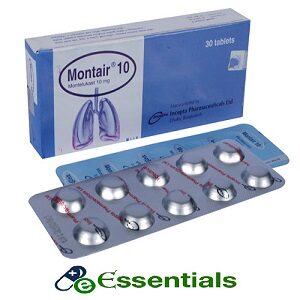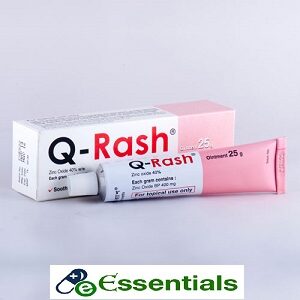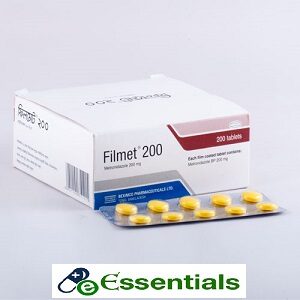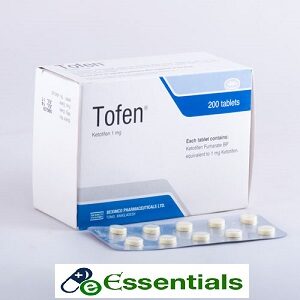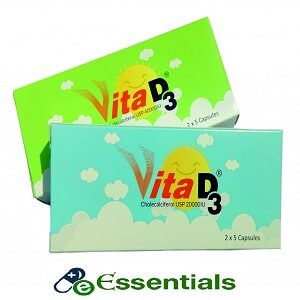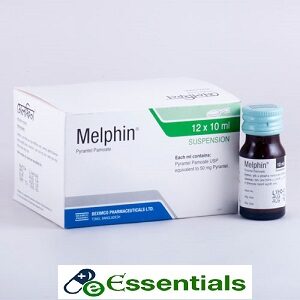Thyrin 50mg Tablet 10pcs
৳ 16.10
Brand : Thyrin 50mg
Ingredients : Levothyroxine Sodium 50 mcg
Manufacturer : Square Pharmaceuticals Limited.
Indications
Specific indications: Primary (thyroidal), secondary (pituitary), and tertiary (hypothalamic) hypothyroidism and subclinical hypothyroidism.
Pituitary TSH Suppression: In the treatment or prevention of various types of euthyroid goiters, subacute or chronic lymphocytic thyroiditis (Hashimoto’s thyroiditis), multinodular goiter and, as an adjunct to surgery and radioiodine therapy in the management of thyrotropin-dependent well-differentiated thyroid cancer.
Therapeutic Class
Pharmacology
Dosage & Administration
In order to avoid irregular absorption, Levothyroxine should be taken preferably at a fixed time on an empty stomach. Concomitant intake of food may decrease the absorption of Levothyroxine. Dosing must be individualized and adjustments to be made based on periodic assessment of the patient’s clinical response and laboratory parameters.
Adult Dosage:
Initial starting dose: 25-50 mcg/day, with gradual increments in dose at 6-8 week intervals, as needed. The Levothyroxine Sodium dose is generally adjusted in 12.5-25 mcg increments until the patient with primary hypothyroidism is clinically euthyroid and the serum TSH has normalized.
In patients with severe hypothyroidism: Initial dose is 12.5-25 mcg/day with increases of 25 mcg/day every 2-4 weeks, accompanied by clinical and laboratory assessment, until the TSH level is normalized.
In patients with secondary (pituitary) or tertiary (hypothalamic) hypothyroidism: Levothyroxine Sodium dose should be titrated until the patient is clinically euthyroid and the serum free – T 4 level is restored to the upper half of the normal range.
For patients older than 50 years or for patients under 50 years of age with underlying cardiac disease: 1.7 mcg/kg/day.
TSH suppression: For thyrotropin-dependent well-differentiated thyroid cancer: Doses >2 mcg/kg/day may be given as a single dose to suppress TSH to <0.1 MIU/L. For benign nodules and nontoxic multinodular goitre: Target TSH is generally higher at 0.1-0.5 MIU/L for nodules and 0.5-1 MIU/L for multinodular goitre.
Pediatric Dosage:
Newborns: The recommended starting dose is 10-15 mcg/kg/day. A lower starting dose should be considered in infants at risk for cardiac failure, and the dose should be increased in 4-6 weeks as needed based on clinical and laboratory response to treatment. In infants with very low (< 5 mcg/dL) or undetectable serum T 4 concentrations, the recommended initial starting dose is 50 mcg/day of Levothyroxine Sodium.
Infants and Children: In children with chronic or severe hypothyroidism, initial dose of 25 mcg/day with increments of 25 mcg every 2-4 weeks until the desired effect is achieved. Hyperactivity in an older child can be minimized if the starting dose is one-fourth of the recommended full replacement dose, and the dose is then increased on a weekly basis by an amount equal to one-fourth the full-recommended replacement dose until the full recommended replacement dose is reached.
Daily dose per kg body weight:
- 0-3 months: 10-15 mcg/kg/day
- 3-6 months: 8-10 mcg/kg/day
- 6-12 months: 6-8 mcg/kg/day
- 1-5 years: 5-6 mcg/kg/day
- 6-12 years: 4-5 mcg/kg/day
- >12 years but growth and puberty incomplete: 2-3 mcg/ kg/ day
- Growth and puberty complete: 1.7 mcg/kg/day
The dose should be adjusted based on clinical response and laboratory parameters.
Interaction
Contraindications
Side Effects
Adverse reactions associated with Levothyroxine therapy are primarily those of hyperthyroidism due to therapeutic overdose. They include the following:
- General: Fatigue, increased appetite, weight loss, heat intolerance, fever, excessive sweating
- Central nervous system: headache, hyperactivity, nervousness, anxiety, irritability, emotional lability, insomnia
- Musculoskeletal: Tremors, muscle weakness
- Cardiovascular: Palpitations, tachycardia, arrhythmias, increased pulse and blood pressure
- Respiratory: Dyspnea
- Gastrointestinal: Diarrhea, vomiting, abdominal cramps
- Dermatologic: Hair loss, flushing
Pregnancy & Lactation
Precautions & Warnings
Overdose Effects
The signs and symptoms of overdose are those of hyperthyroidism – agitation, confusion, irritability, hyperactivity, headache, sweating, mydriasis, tachycardia, arrhythmias, tachypnoea, pyrexia, increased bowel movements and convulsions. Cerebral embolism, shock, coma, and death have been reported. Symptoms may not necessarily be evident or may not appear until several days after ingestion of Levothyroxine Sodium.
Treatment of Overdose: Levothyroxine Sodium should be reduced in dose or temporarily discontinued if signs or symptoms of overdosage occur. Treatment is symptomatic.
Storage Conditions
Brand
Square Pharmaceuticals Ltd


